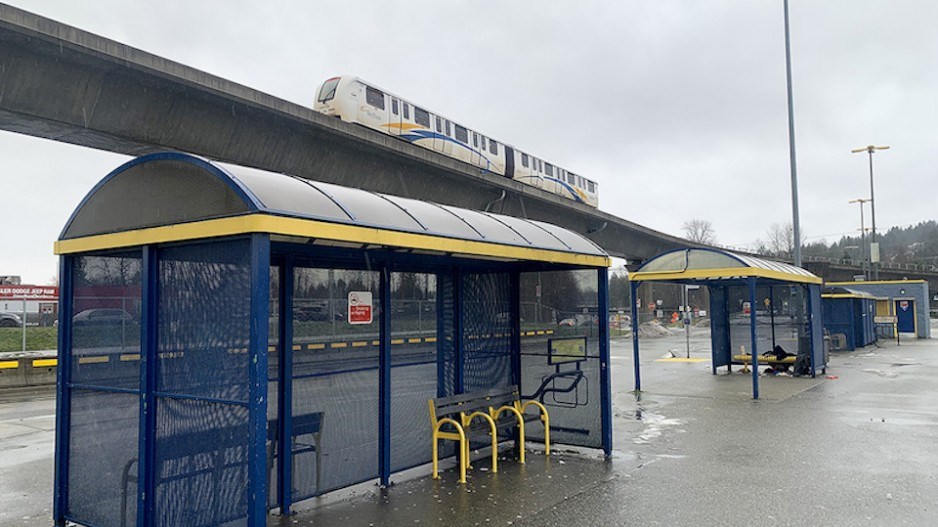Another Metro Vancouver transit strike that includes a shutdown of bus and SeaBus services could take place again this weekend — but commuters may still lose access to other transportation services, too.
CUPE 4500 — the union representing some transit supervisors — has not reached an agreement with its employer, Coast Mountain Bus Company (CMBC), on wages and workload issues.
Seasoned mediator Vince Ready has been appointed by the B.C. government to help both parties reach an agreement but the union may expand their job action if a deal isn't made.
Will the union strike if they are not granted permission to picket the SkyTrain?
If a deal isn't reached just after midnight on Friday, Feb. 3, the union will move forward with a 72-hour strike on all CMBC bus and SeaBus routes.
The union will proceed with its job action even if it isn't permitted to picket the SkyTrain, Canada Line, and West Coast Express; they have already been granted access to picket CMBC services.
When will commuters know about the SkyTrain decision?
The union, along with TransLink and several of its branches, including CMBC and Protrans, met with the BC Labour Relations Board (BCLRB) on Wednesday, Jan. 31, at 9:30 a.m. to discuss expanding strike action to include the SkyTrain, the Canada Line, and the West Coast Express.
CUPE 4500 spokesperson Gregory Taylor told V.I.A. that the hearing on the union's Labour Relations Code Sec. 68 complaint is ongoing.
The board may not issue a ruling on Wednesday or before the union takes its next steps.
The scope and location of the picketing is up to the union to determine and the BCLRB to approve.
When will the strike end and could there be another one after that?
After the 72-hour strike, transit services would resume on Feb. 6 just after midnight. However, there is always a possibility that the union could extend this strike window or further escalate its job action.
Will Uber and Lyft put a cap on surge pricing if there is another strike?
Without buses on the streets, the costs of Uber and Lyft services surged, while many people failed to hail a taxi or access an Evo car share due to skyrocketing demand.
If commuters don't have access to the SkyTrain or Canada Line, there will be an even greater demand for ride-hailing, taxi, and car-share services.
Following consumer backlash, Uber and Lyft implemented a temporary cap on pricing during the previous strike. It is unclear if they will implement the same policy if there is another strike but Uber told V.I.A. that it responded by allocating more drivers to meet the demand during the previous one.
When did the union commence job action?
CUPE 4500's transit supervisors implemented a ban on overtime work starting on Jan. 6, affecting several transit operations in the network. The union says the overtime ban had a significant effect on service because they often work outside of their regular hours to keep the system running smoothly.
Starting at 3 a.m. on Monday, Jan. 22, the union began picketing all of CMBC's bus and SeaBus routes during a two-day transit strike; CMBC operates 97 per cent of TransLink's bus routes.
Why is the union striking?
Wages are the central issue at the bargaining table. The union wants its supervisors to be paid the same as SkyTrain Field Supervisors but CMBC says the roles are incomparable because the latter is responsible for directly managing employees.
According to the CMBC, supervisors have been offered a 13.5 per cent increase over three years, starting from Jan. 1, 2023, when the old three-year contract expired.
That brings a transit supervisor’s salary to $104,886, from $92,415.
The company says the union’s offer is a 25 per cent increase, to a salary of $115,477.
Sign up for Transit Alerts, consult the Trip Planner, follow @TransLink on X (formerly Twitter) or call the customer information desk at 604-953-3333 (translation services are available in over 300 languages).
With files from Graeme Wood




